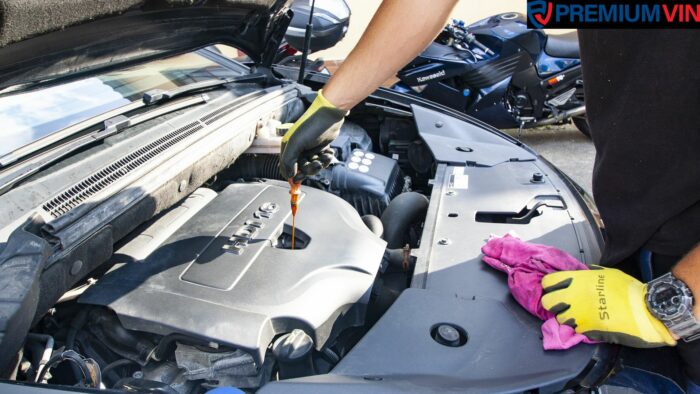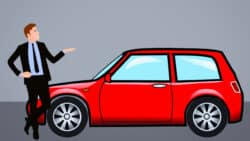Size does matter when it comes to car engines but that’s not all.
Before buying a new or used car, you must know how to find the right fit by selecting the right make and model of your choice, and figuring out the type of “mileage per liter of petrol” car will meet your needs.
Some research is needed to determine the car’s history and get all of the necessary paperwork in order. Then there are other things like the color of the vehicle and whether you want a heated seat or not.
But before coming to that, there’s one factor that must be considered first, and that’s the engine size – this determines many other features of the car.
Should it matter if the car engine has 4, 6, or 8 cylinders? Should you care if the car engine has 1.5L, 2.0L, or 3.3L? Should it matter if your car has 150 hp or 300 hp? Are you thinking all these don’t matter since you’re not racing your vehicle on the track?
Well, the size of your engine really matters whether you drive a small car, minivan or truck.
The idea about engine sizes is pretty easy to understand. The bigger the engine, the more liters it holds.
Liters, here, means the engine capacity, with the figure referring to the total volume of all cylinders. An engine with a large volume tends to burn more fuel.
Generally, an engine with more cylinders produces more power. For instance, a 6-cylinder engine has more output than a 4-cylinder engine. When there are two engines of the same number of cylinders – let’s say two V6 engines, the one with the larger volume will produce more power.
So if we have two V6 engines (one with 3.3L and another with 5.7L) the latter one will output more power than the former.
But before I get questioned by technicians and engineers, let me say that power also depends on other factors like valves’ timing, where the fuel is injected, temperature, and so on. For the sake of this article, I won’t be getting into all those things.
What Engine Size Is Right For Me?
There is a need for you to choose the car that meets your needs and lifestyle.
Knowing about the engine size is one of the things to factor in when looking for a car to purchase.
For instance, a regular motorway commuter will be best suited with something more powerful but if you are the type that drives a lot around town, a smaller engine car might be preferred – smaller engines tend to be more efficient for smaller travels.
However, the engine size is not the only factor to consider in order to make an informed decision about buying a car. It’s just one of the many variables that are involved.
Here are a few things to think about when buying a car:
- Fuel efficiency
- Safety
- Driving comfort
- Cost of insurance
- Design
- Space
- Vehicle history
- Prices and financing
Why Does Engine Size Really Matter?
1. Engine Size Can Affect Performance
A more powerful engine promotes better acceleration, higher speeds, and easy towing. Please note that having a larger engine doesn’t automatically mean this will be possible.
Other factors, like the age of the engine and the weight of the car, can affect the calculated maximum power of the engine.
2. Engine Size Can Affects Fuel Economy
Usually, the larger an engine and more displacement it has, the more fuel it will consume. The logic is that more fuel is needed to be pumped into the cylinders.
This can greatly increase the fuel economy of a car. Other factors that can affect the fuel economy include the driving style, how the car is managed etc.
Keeping up with the basic maintenance of your car can also influence the amount you spend on fuel.
How Reliable are Bigger Engines?
It all depends. There are a lot of benefits that come with big engines.
A bigger engine displacement is able to burn more air and fuel at a time, therefore causing the engine to produce more power than a smaller engine.
More power equates to better acceleration and an efficient towing – moving heavier loads.
Nevertheless, the reliability is not about engine size or power. Recall that a reliable engine is one that can perform consistently well without breaking down frequently.
This ability depends on the engine parts and how it has been assembled. So, the reliability of an engine is not really about the size but the workmanship and quality control that the manufacturer assembled into the engine.
Be aware that all car manufacturers are not the same in terms of the quality of engines they build.
Advantages and Disadvantages of Bigger Engines
Certainly, bigger engines produce much more power but they also have their drawbacks.
First, they’re less fuel-efficient than smaller engines. A car having a larger displacement means its engine takes in more fuel and air at a time, thus becoming heavier.
This means a heavier car that requires more power to move, therefore burning more fuel.
Choosing the Best Engine Size for your Needs
A lot of work on your part is required to choose the best engine size for your needs. Always remember that bigger does not necessarily mean better – at least for most people).
The insurance and tax costs, your typical commute and driving conditions and your priorities are some of the things you’ll have to take into consideration when choosing the best engine size for your next car.
Conclusion
When it comes to buying a car – used or new, you need to consider what your priorities are.
If you’re only using it as your daily driver to work and dropping your kids in school, then big engines won’t make much sense in those cases.
Rather, a car with a smaller engine displacement would be more preferred and economical for such situations.
However, if you’re driving a pickup truck for work, with plans of towing heavy loads, then a bigger engine is more suitable. The added power output from a big engine is required to move all that weight around easily.
Are you buying a used car? Run a VIN check to verify the actual mileage of the car before purchase.







